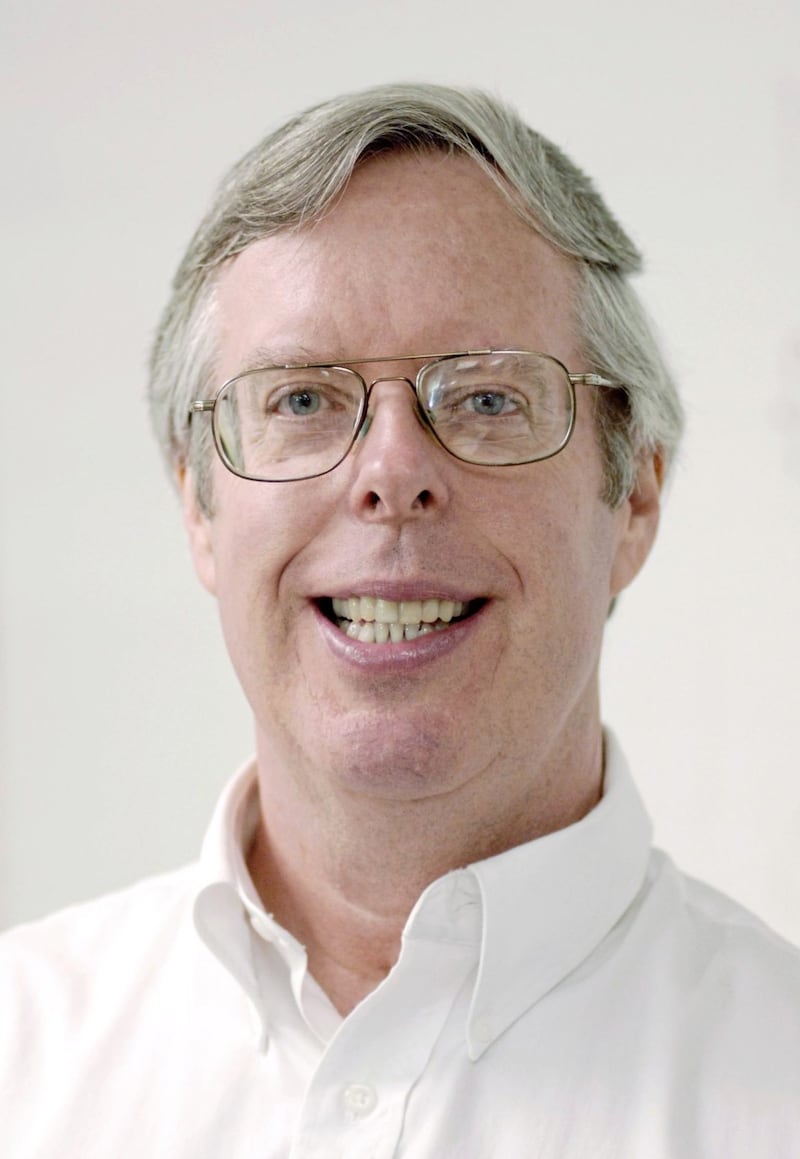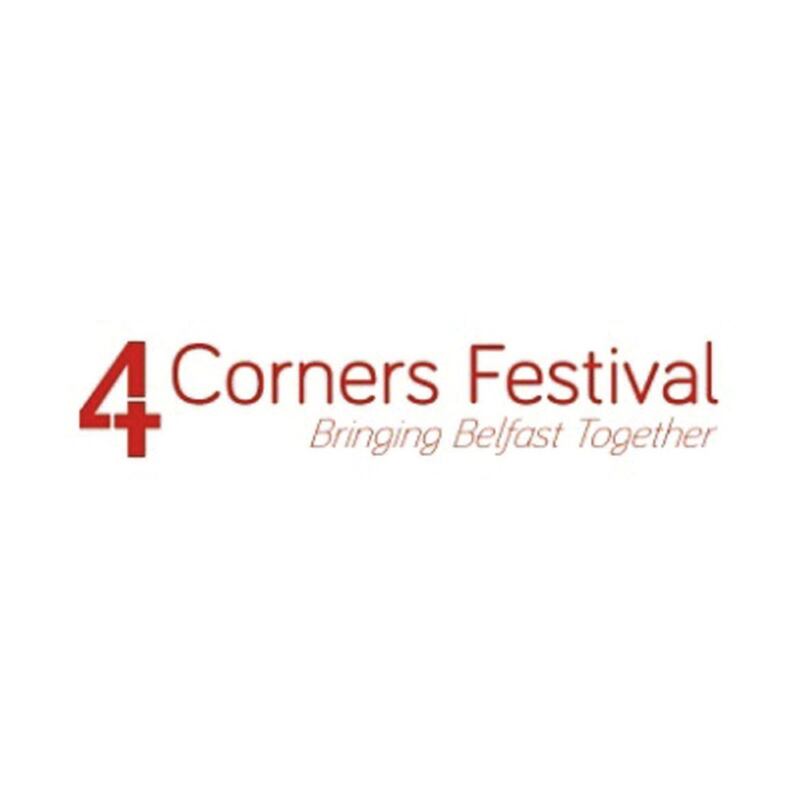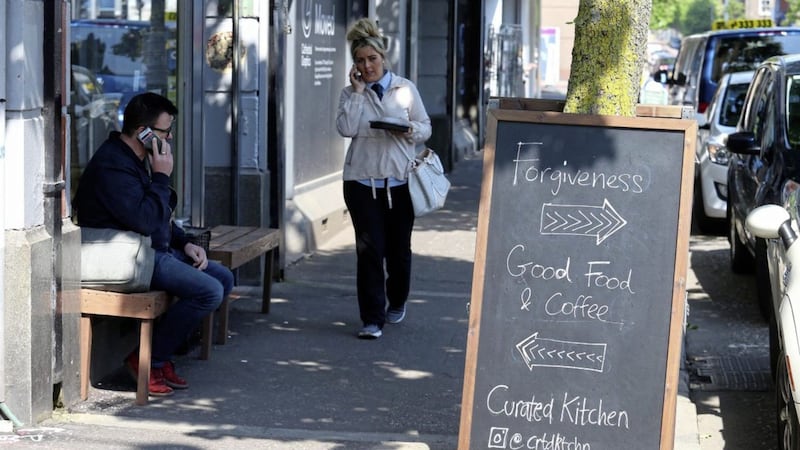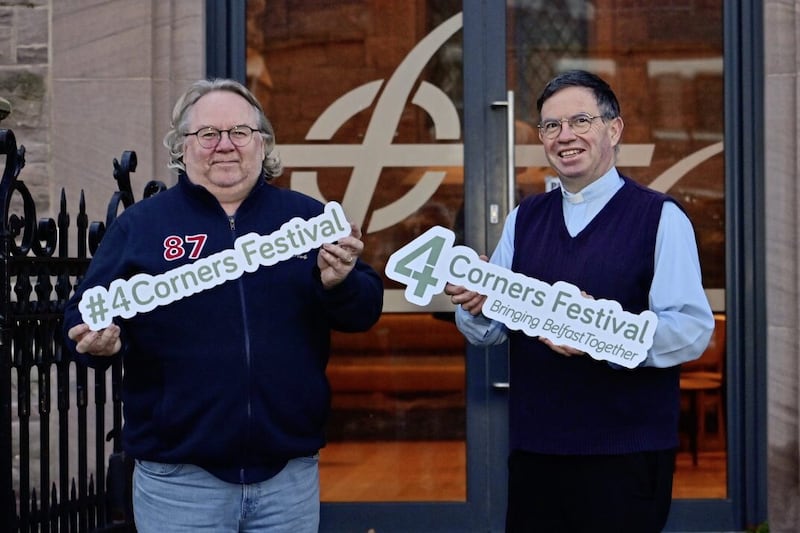FORGIVENESS is the Churches' business. Or at least it should be. So isn't it a sad truth that even in a place as well 'churched' as Northern Ireland, many people tend to associate our denominations and Churches, their leaders and congregations, with attitudes that are less than forgiving?
Blaming 'the Churches', as if they were some monolith, for this state of affairs is a little too easy, perhaps.
Churches are, after all, made up of people. And are people outside our Churches really any more forgiving than those inside them?
Still, Christians should be taking forgiveness more seriously, especially in a society such as ours which, because of the legacy of the Troubles and sectarianism, needs to experience it more than most.
As the great Belfast-born writer CS Lewis put it: "To be a Christian means to forgive the inexcusable, because God has forgiven the inexcusable in you."
This tension between belief and practice has inspired the theme of this year's 4 Corners Festival, with a series of events running until February 10 under the title 'Scandalous Forgiveness'.
"Some acts of forgiveness might be absolutely scandalous to others, but might it also be scandalous too if talk about forgiveness in church every Sunday and yet aren't about the business of forgiveness," say festival co-founders Fr Martin Magill and Rev Steve Stockman.
"What would a future Belfast look like if we were a 'forgiving city'?"
Professor Robert D Enright is regarded as the world's leading authority on 'forgiveness education'.
Based at the University of Misconsin-Madison, he has forged an international reputation for his pioneering work in the scientific study of forgiveness, and his programmes are already used in schools in Northern Ireland.
But what, I ask him, is 'forgiveness'?
It is, he says, "a moral virtue, as are justice, patience, and generosity".
Resentment unchecked can lead to fatigue, pessimism, higher blood pressure, stress-related symptoms, and an anger that is passed through the generations - and on it goes until someone decides to break this poisonous cycle by forgiving
"Forgiveness occurs when the forgiver chooses to be good to those who have not been good to the forgiver," he explains, before setting out, in terms which resonate with the Northern Ireland experience, what forgiveness is not.
To forgive is not to excuse what happened, he says, "because what happened was wrong"; nor is it to forget completely what happened, "because we remember in new ways without deep anger".
Forgiveness is also different from reconciliation, which Prof Enright says "is not a moral virtue, but instead is a negotiation strategy of two or more people coming together again in mutual trust".
And to forgive does not mean abandoning "a quest for justice" for the simple reason that "forgiveness and justice can and should exist side-by-side".
"Anyone is free to exercise any moral virtue at any time without a prior response from another person," says Prof Enright.
"Thus, a person can exercise fairness - or justice - whenever a person wishes to be fair. A person can unconditionally decide to be good to another person who acted badly - in other words, forgive them - even if the other never apologises or never has an interest in reconciling. If the offending person does apologise, it does make forgiving easier."

He recognises the idea that forgiveness can be 'scandalous'.
"I think the organisers of the 4 Corners Festival rightly understand that forgiveness seems, to some people, to be outrageous and offensive," says Prof Enright.
This is because "some people misunderstand what forgiveness is". They see it "as throwing justice under the bus, which is not what forgiveness is": "Thus, forgiveness, when misunderstood, seems to be a bad move."
Just as there are many high profile examples of Troubles victims forgiving perpetrators, there are others who are not yet prepared to take the step of forgiveness.
"Forgiveness is a choice," says Prof Enright.
"We should never condemn a person who forgives if we do not want to do so. We never should condemn a person who refuses to forgive if we do want to forgive.
"We need to let people decide on their own. Are people better off if they willingly choose to forgive without pressure from others?
"Yes and our research on forgiveness over the past 30 years shows that as people forgive and rid themselves of resentment, then they become less anxious, less depressed, more hopeful of their own future, and end up liking themselves more than before they practised forgiveness."
I ask Prof Enright what he meant when he said "if we are to save the planet, we must be bathed in forgiveness".
"People need to realise that when they have been treated deeply unjustly, then there are powerful effects that characteristically emerge in people," he explains.
"The most dangerous effect of being treated unjustly is resentment, or deep, abiding anger.
"Resentment unchecked can lead to fatigue, pessimism, higher blood pressure, stress-related symptoms, and an anger that is passed through the generations.
"Resentment can be passed down from father to son to grandson to great grandson, and on it goes until someone decides to break this poisonous cycle by forgiving. Forgiveness is the most powerful cure for resentment I have ever seen."
To be "bathed in forgiveness", then, "means to understand accurately what forgiveness is, to willingly practice it and to develop a love of this virtue".
"In such a context, people would be emotionally healthier, relationships would be stronger, and communities would not be brought down by hatred and the violence that too often accompanies hatred," he says.
"We would have a better, happier world. For the sceptic on this point, I say this: Why not give forgiveness a try. It may prove to have more value than people might think."
Prof Enright says his commitment to forgiveness comes not from faith but from "my passion is as a scientist".
"I had the honour in 1989 of being the first person in the social sciences to publish a peer-reviewed journal article with the primary focus on research centred on forgiveness," he says.
"We started the field of forgiveness studies in the social sciences. As I saw profound healing effects of forgiveness, then the more enthusiasm I developed for this life-giving virtue."
In post-Troubles Northern Ireland, 'reconciliation' is more commonly spoken of than forgiveness.
Though he is an ambassador for forgiveness, Prof Enright says there is a connection between the two concepts.
"True reconciliation involves two or more people coming together again in mutual trust," he explains.
"I do not think, when there has been severe injustice, that true reconciliation is possible without first doing the hard work of forgiveness.
"People may show restraint, they may show tolerance, but if they truly are to see each other as possessing inherent worth - not because of what happened, but in spite of this - then forgiving from the heart is necessary.
"People in Northern Ireland need to realise that they may have compromised emotional health because they have not cleansed themselves of the poison of resentment, which does more damage to the one harbouring the resentment than it does to the one who is the object of that resentment."
People in Northern Ireland need to realise that they may have compromised emotional health because they have not cleansed themselves of the poison of resentment, which does more damage to the one harbouring the resentment than it does to the one who is the object of that resentment
Prof Enright is speaking at an event in Belfast tomorrow called 'Teaching the gift of forgiveness - how does it fit in with everything else?'.
The session is geared towards teachers and others involved in education, and he will discuss how forgiveness fits into the school curriculum.
"Aristotle, and Plato before him, saw the importance of learning to become more virtuous and this requires practice," says Prof Enright.
"To grow in justice, one needs to understand what it is and then willingly choose to practise being fair to others.
"It is the same with forgiveness. We first have to understand what it is - and what it is not - and then be given a chance, if we choose, to practise it.
"We now have forgiveness education curriculum guides, professionally produced, for students from age four through to 18, including an anti-bullying forgiveness guide."
Research, he says, shows that "as teachers instruct their students on themes of forgiveness - for example by presenting stories in which there is interpersonal conflict that is resolved through forgiveness - for about one hour a week for about 12 weeks, then those students can become less angry, less depressed, more academically focused, and more cooperative".
"Northern Ireland has an initiative called Personal Development and Mutual Understanding," says Prof Enright.
"Part of this initiative is to help students to examine their emotions, especially anger; forgiveness reduces anger and we have scientific evidence for this.
"It also helps them to grow in character development, because forgiveness encourages growth in kindness, respect, generosity and love."
The programme can also help children to become more cooperative.
"Teachers report to us that as they use our forgiveness education curricula, then the entire class of students becomes more cooperative," he says.
"It also helps them manage conflicts. Forgiveness assists students as they are willing to reconcile.
"We also have an anti-bullying forgiveness curriculum. In this anti-bullying program, teachers help those who bully others to first forgive those who may have bullied them.
"As their anger goes down, then those who have had a pattern of bullying no longer have a central motive for their bullying which often is inner discontent and rage that is displaced onto other unsuspecting students.
"Our forgiveness education curriculum guides for teachers start in Primary 1 and go through the end of post-primary education."
Away from Northern Ireland schools, Prof Enright is involved in programmes in more than 30 other countries, including the United States, Greece, Israel, Iran, Liberia and Pakistan.
"We also have an initiative in adult prisons and juvenile detention centres," he says.
"Our research shows that in maximum security men's prisons, up to 90 per cent of the men surveyed have had severe injustices against them prior to their arrest, conviction, and imprisonment.
"As they learn to forgive those who treated them very badly, their anger goes down and they become less dangerous in the prison setting.
"Some of the men tell us that the forgiveness interventions are the only rehabilitation efforts that work.
"We have a new initiative in which we are helping to forgive people who are homeless, and who are harbouring deep resentments from seriously unfair treatment against them.
"It is our working scientific hypothesis that the forgiveness intervention will give them the improved emotional health to make positive changes in their lives."
As part of the 4 Corners Festival 'Scandalous Forgiveness' programme, Professor Robert D. Enright will be speaking on 'Teaching the gift of forgiveness - how does it fit in with everything else?' in Stranmillis University College, Belfast at 9.30am tomorrow
More about Prof Enright's work on forgiveness education can be found at internationalforgiveness.com
The 4 Corners Festival runs until February 10









